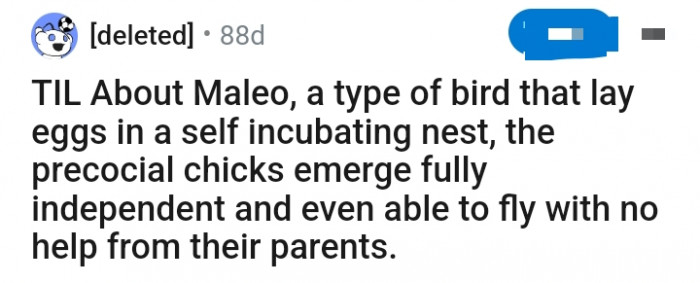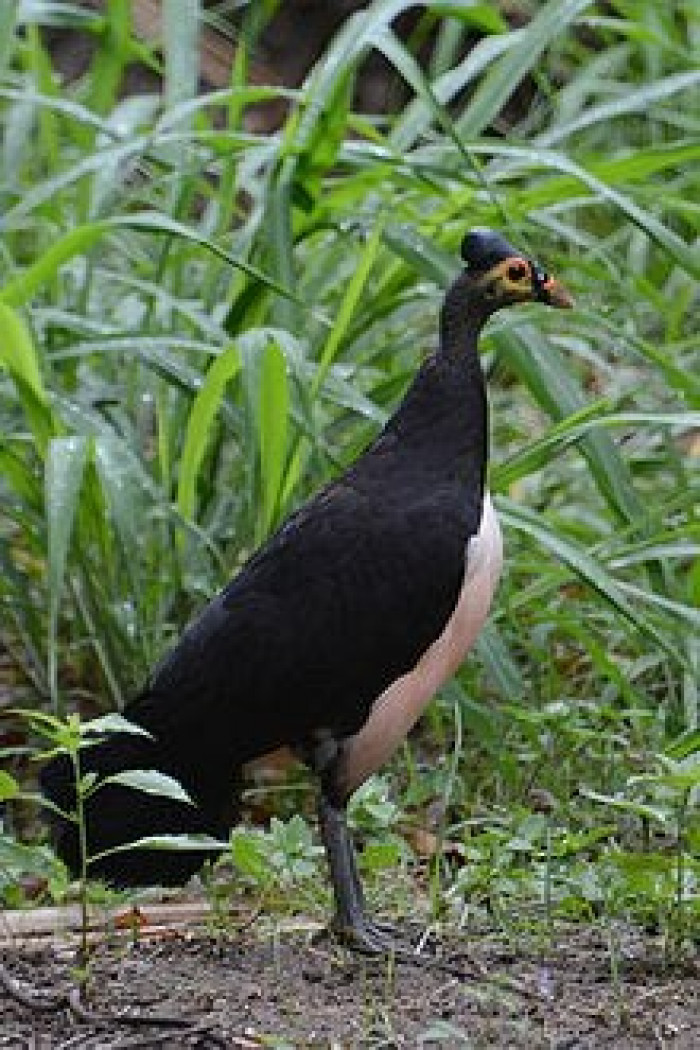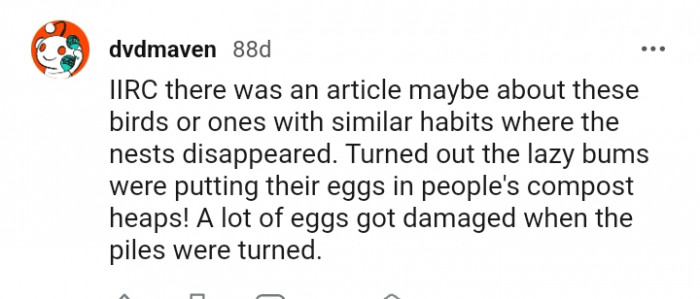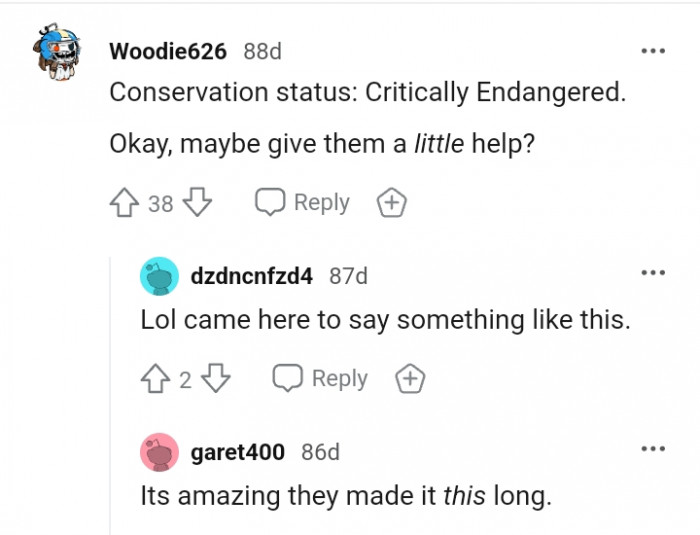Meet Maleo, A Bird That Lays Eggs Underground - The Hatchlings Dig Their Way Up and Fend for Themselves with No Help from Their Parents
The only member of the monotypic genus Macrocephalon is the maleo, a sizable megapode. Sulawesi and the adjoining smaller island of Buton in Indonesia are the only places where the maleo is found.
Although it nests in open sandy areas, volcanic soils, or beaches heated by the sun or geothermal activity, it is widespread in tropical lowland and hill forests. The maleo's egg is enormous, around five times the size of a domestic chicken's egg.
The female places each egg in a deep hole in the sand, covers it, and then waits for solar or volcanic heating to initiate incubation. The baby birds climb out of the sand after the eggs hatch and take cover in the forest.
The baby birds are fully independent and able to fly. They must hunt for food and protect themselves against various predators.
Maleos maintain a constant closeness to their partners because they practice monogamy. Fruits, seeds, mollusks, ants, termites, beetles, and other small invertebrates make up the majority of their diet.
Maleos breed year-round, although the best time to breed depends on their location on the island. The female maleo leaves the protection of the Sulawesian forest when she is ready to lay her eggs, accompanied by her mate, in search of ancient coastal breeding grounds.
Over the course of a year, females can lay anywhere between 8 and 12 eggs.
This Redditor has an interesting piece of information to share with the TodayILearned subreddit group

The males dig a large hole and place the egg inside after selecting an ideal location. After the egg is laid, the parents securely bury it in the sand, perhaps covering it with various debris to help conceal the hole.
The parents abandon the maleo chick to care for itself after the egg has been safely buried.
The IUCN Red List of Threatened Species rates the maleo as critically endangered

Maleo eggs are warmed by geothermal or solar heat and are then incubated in the hot sand of Sulawesi. A maleo chick becomes entirely independent just a few hours after hatching.
As a result of the nearly fully formed maleo ovaries inside, maleo eggs are approximately five times larger than domestic chicken eggs. Immediately after hatching, the chick must dig its way out of the sand before it can fly and find food for itself.
According to this Redditor, this is a surprising behavior for a bird

The Miracle of Natural Instincts
The unique reproductive strategy of the maleo bird serves as a fascinating example of nature's adaptability. Dr. Linda H. Johnson, an evolutionary biologist, explains that this behavior, where hatchlings must fend for themselves from birth, reflects an evolutionary strategy to minimize parental investment while maximizing survival chances. This behavior can be understood through the lens of evolutionary psychology, which posits that such adaptations are responses to environmental pressures.
Research indicates that species with high predation rates often evolve such independent survival strategies, highlighting the intricate balancing act of nature.
Unique Parenting Strategies in Nature
The maleo bird's unique reproductive strategy provides fascinating insights into evolutionary psychology and parental investment.
Dr. Alan Smith, an evolutionary biologist, explains that this method of laying eggs underground and leaving the hatchlings to fend for themselves is an adaptation to environmental pressures.
Research indicates that species employing such strategies often face different survival challenges compared to those that invest heavily in offspring care.
Specialized behavior is no guarantee of survival

A similar article where many eggs were damaged when the piles were turned

This Redditor watched Ze Frank's video on parasite birds

From a developmental perspective, the maleo's approach can be likened to the concept of 'independent learning' in human children. Dr. Angela Duckworth, a renowned psychologist and author, states, "The ability to learn independently is a crucial skill that fosters resilience and adaptability in children." This comparison serves as a reminder of how species, including humans, benefit from fostering independence. Understanding these patterns can inform educational practices that emphasize critical thinking and self-reliance in children, as highlighted by Dr. John Hattie, an education researcher who emphasizes that "students who take ownership of their learning are more likely to succeed." For more insights, visit Dr. Angela Duckworth's website and Dr. John Hattie's site.
The concept of 'parental investment' in evolutionary terms suggests that different species evolve varying strategies for raising their young based on ecological niches.
According to studies in the Journal of Evolutionary Biology, understanding these strategies can shed light on why some species are more resilient in changing environments.
This resilience can often be traced back to the balance of risk and resource allocation in offspring development.
This Redditor came to the comments to say something like this

Due to egg theft and land conversion for agriculture, many historic nesting locations have been abandoned. Only four of the 142 known nesting sites are thought to be currently safe.
The island's remaining and future populations of the species face grave threats from the island's shrinking and fragmenting forest habitats. The Indonesian government has been protecting this species since 1972.
Survival and Independence in Young Animals
Research in developmental psychology highlights the importance of early independence for certain species, including the maleo.
Studies show that allowing young animals to navigate their environment fosters critical survival skills, which are essential for their long-term success.
This evolutionary strategy underscores the diverse approaches to parenting found in the animal kingdom.
Psychological Analysis
This fascinating reproductive strategy of the maleo highlights the complexity of parenting across species.
Understanding these behaviors can provide insights into the evolutionary pressures shaping animal behaviors and survival strategies.
Analysis generated by AI
Analysis & Alternative Approaches
The maleo bird's unique reproductive approach illustrates the diversity of parenting strategies found in nature, supported by evolutionary psychology research.
Understanding these strategies can enhance our appreciation for the adaptability of life forms.
As noted by various studies, the balance of risk and independence plays a crucial role in the survival of species.
Lessons from Nature: Independence and Growth
The maleo's reproductive strategy offers insights into the importance of independence in both animal and human development. Dr. Margaret R. Smith, a child psychologist, notes that fostering autonomy in children can lead to improved self-esteem and decision-making abilities. Research suggests that children who are allowed to take risks and learn from their experiences tend to develop a stronger sense of self and agency.
This parallels the maleo's survival strategy, emphasizing the value of independence in navigating challenges.
Analysis & Alternative Approaches
In conclusion, the fascinating reproductive strategies of the maleo bird not only showcase nature's ingenuity but also provide valuable lessons for human development. Emphasizing independence and resilience can lead to enhanced problem-solving skills and adaptability in children. Understanding these principles can inform educational practices and parenting styles that nurture growth.



